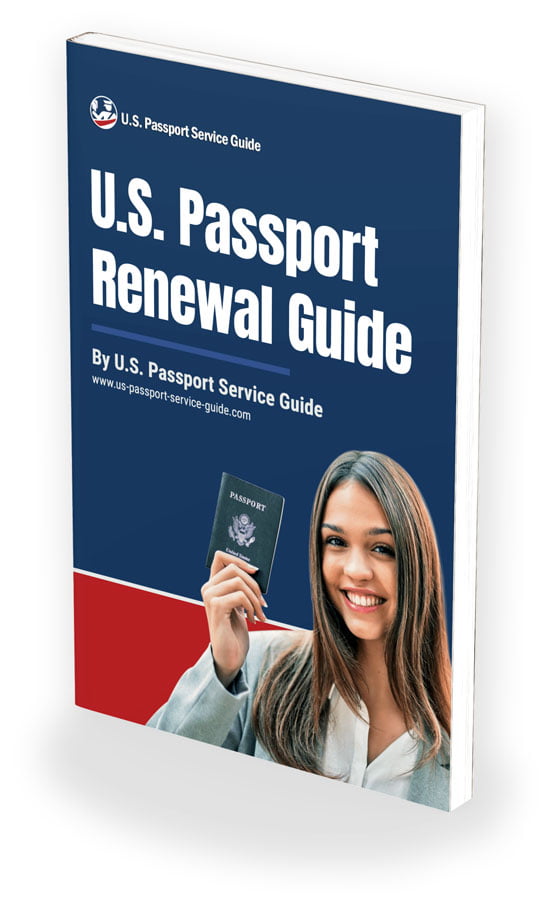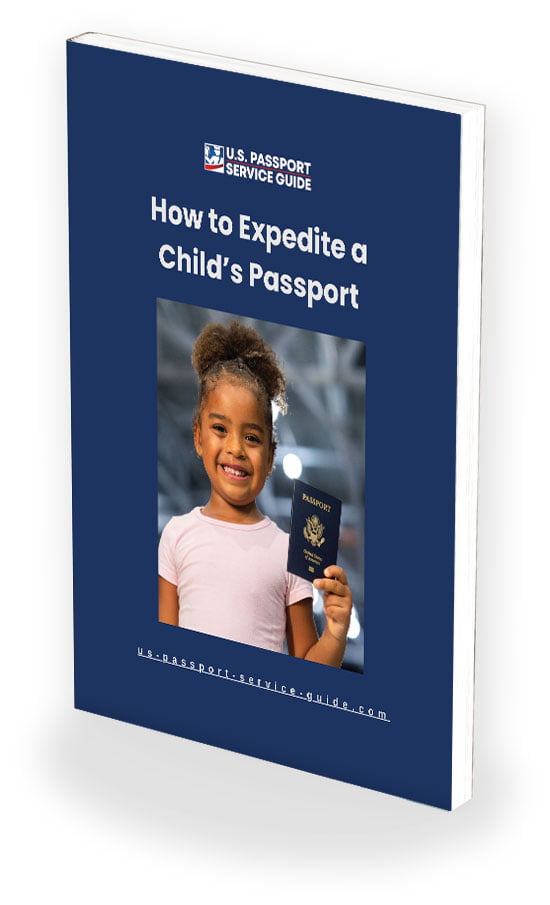If your U.S. passport has expired, you might be wondering whether to renew it or start from scratch with a new passport.
The answer depends on your situation, and understanding the differences between the two options can save you time, money, and potential travel delays.
We’ll explain the differences between the two options to help you decide the best path forward.
In a rush? Use a top-rated passport expediting service and start the renewal process now.
Table of Contents
Renewing an Expired Passport: When Is It Possible?
Renewing an expired passport is often simpler than applying for a new one, but it’s not always an option. You can only renew your expired passport by mail if you meet the following criteria:
- Your passport was issued when you were 16 years old or older,
- It was issued within the last 15 years, and
- The passport is undamaged and can be submitted with your application.
This means that even if your passport expired up to 5 years ago, you’re still eligible for renewal, provided you have it (i.e., it’s not lost or stolen) and it meets the conditions outlined above.
If you meet these eligibility requirements, you can choose between two options for passport renewal: by mail or online. Be sure to read our deep dive into these options, Comparing U.S. Passport Renewal: Online vs. Renewal by Mail, for more information on these two passport renewal options.
When Should You Apply for a New Passport?
If you don’t meet the requirements for renewing your passport, you must apply for a new one. This is necessary in situations such as:
- Your last passport was issued more than 15 years ago,
- You were younger than 16 years old when it was issued, or
- Your expired passport is damaged, lost, or stolen.
Applying for a new passport requires visiting a passport acceptance facility in person and paying a $35 execution fee, in addition to the standard passport application fees.
While the process of applying for a new passport can be more involved than a renewal, it’s the only option if your passport no longer qualifies for renewal.
Key Differences Between Renewal and New Applications
Both renewing a passport and applying for a new one involve paperwork, fees, and photos. However, the key differences are:
Passport Renewal vs. New Application Comparison at a Glance
| Criteria | Renewing an Expired Passport | Applying for a New Passport |
| Eligibility |
– Issued within the last 15 years – Age 16+ at issuance – Undamaged |
– Issued over 15 years ago – Under age 16 at issuance – Lost/Stolen or Damaged |
| Application Form | DS-82 | DS-11 |
| Submission Method | Mail or Online | In-person or at a passport acceptance facility |
| In-Person Visit Required | No | Yes |
| Processing Time (Standard) | 4-6 weeks | 4-6 weeks |
| Processing Time (Expedited) | 2-3 weeks | 2-3 weeks |
| Fees | Application fee only | Application fee + $35 execution fee |
| Additional Requirements & Supporting Documents | Submit most recent passport and name change (if applicable) | Submit proof of citizenship and name change (if applicable) |
Choosing the Right Option for Your Travel Needs
Your choice between renewing your passport or applying for a new one mostly depends on two factors:
- How quickly do you need your passport and
- If you qualify for renewal
If you have an upcoming trip in the next few months and your passport meets the renewal criteria, renewing is usually faster and less expensive.
However, if your passport expired over 15 years ago or you’ve had a name change since it was issued, you may need to apply for a new passport instead.
Using an Expedited Service for Faster Processing
In situations where you need your passport as soon as possible, expedited services can significantly speed up the process.
Both renewals and new applications can be expedited, reducing processing times from 4-6 weeks to 2-3 weeks.
For an even faster turnaround, you might consider making an appointment at a Regional Passport Agency or hiring a professional passport expediting service, which can secure a passport within a few days to as little as 24 hours. This is especially helpful for travelers who need a passport urgently but don’t have the time to handle the process themselves.
FAQs
Q: Should I renew my expired passport or apply for a new passport? (Tim from Davenport, IA)
A: If your passport was issued within the last 15 years, when you were 16 or older, and is not significantly damaged, you can renew it by mail or online. If not, you will need to apply for a new passport.
Q: Do I have to submit my most recent passport when I renew or can I submit a prior passport that expired? I would like to be able to use my current passport until I receive my new one. (Simone from Rochester, NY)
A: When applying for renewal, you must submit your most recently issued passport. Once submitted, you cannot travel using an expired passport. If you need your passport quickly, you can request expedited service by mail to get your passport renewed in 2-3 weeks, visit a Regional Passport Agency, or hire a registered passport courier and get your passport in as little as 24 hours.
Q: Can I renew my passport early before it expires? (S. Brule from Cody, WY)
A: Yes, you can renew a valid passport early. This can be a good idea if you anticipate traveling soon, as some countries require a passport with at least 6 months of validity for entry.
Q: What documents do I need if I’m applying for a new passport due to a name change? (Carlina from Burlingame, KS)
A: You will need to provide a completed Form DS-11, your expired passport, and legal proof of your name change, such as a marriage certificate.
Q: How long does it take to get a new passport or renew an expired passport? (Rick T. from Grand Marais, MN)
A: Routine processing takes 4-6 weeks, while expedited service takes 2-3 weeks. If you need your passport sooner, you can visit a Regional Passport Agency or use a registered expediting service for quicker results.
Q: Do I need to submit my most recent passport when renewing? (Ellia from Taos, NM)
A: Yes, you must submit your most recent passport when applying for renewal. You cannot use an older passport for this purpose.
Plan Ahead to Avoid Travel Delays
No matter which option you choose, it’s essential to plan ahead. Passport processing times can fluctuate—especially during busy travel seasons.
By understanding the process, current processing times, and any associated fees—whether you’re renewing or applying for a new passport—you can ensure a smooth, hassle-free experience and focus on planning your next adventure!
Are you enjoying our blog? If you want to get passport news and international travel tips sent directly to your inbox, subscribe now and never miss a post!
For more detailed guides on passports and travel, visit U.S. Passport Service Guide.








